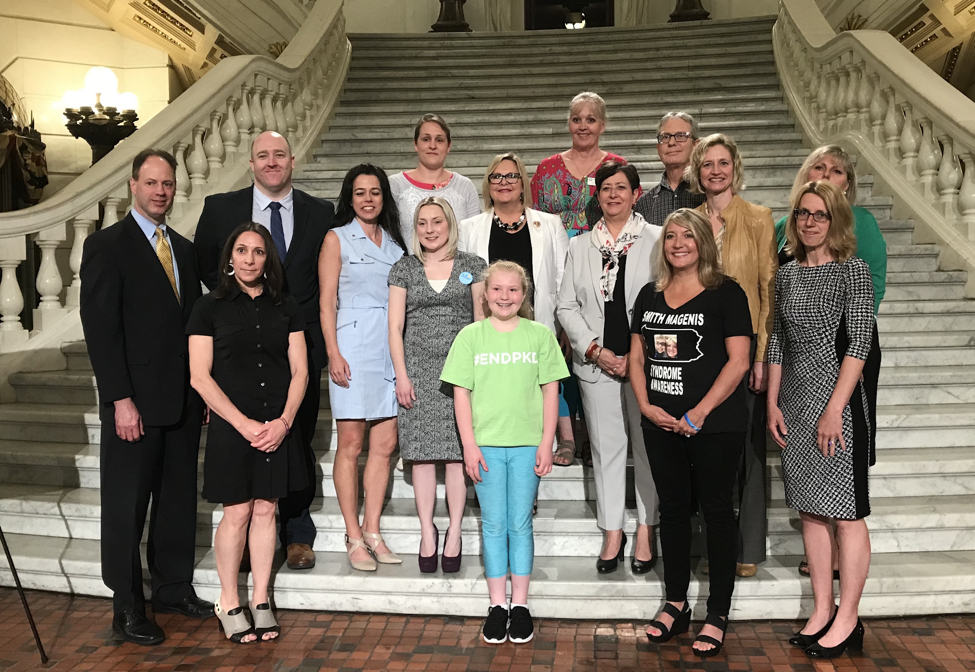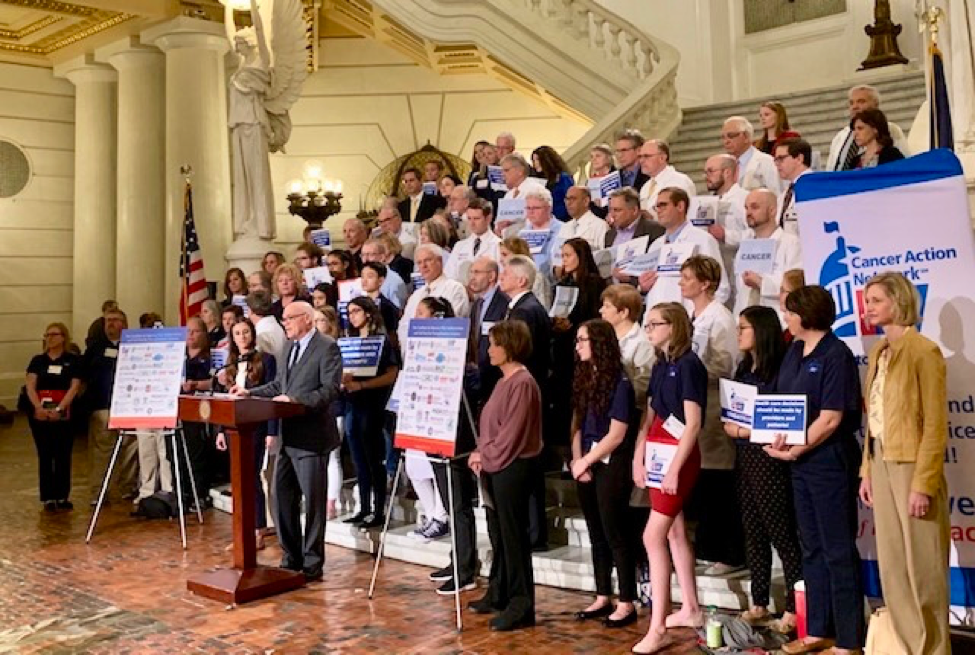SomnusNooze
 The Hypersomnia Foundation has named Rebecca King, who is both a person with IH and an HF volunteer, as a Legislative Advocate. In this role, Rebecca will be leading HF efforts to assess the legislative landscape, select the issues and bills with the greatest potential to benefit the hypersomnia community, and form teams to advocate at both the state and federal level. Access to and affordability of medication is clearly a high priority, as insurance companies have adopted policies such as step therapy in an attempt to reduce costs.
The Hypersomnia Foundation has named Rebecca King, who is both a person with IH and an HF volunteer, as a Legislative Advocate. In this role, Rebecca will be leading HF efforts to assess the legislative landscape, select the issues and bills with the greatest potential to benefit the hypersomnia community, and form teams to advocate at both the state and federal level. Access to and affordability of medication is clearly a high priority, as insurance companies have adopted policies such as step therapy in an attempt to reduce costs.
“Step therapy (sometimes called Fail First) is currently a hot topic in state legislatures,” Rebecca says. “Insurance companies have implemented step therapy protocols in recent years to address the high cost of specialty medications for chronic diseases and customized treatments for diseases such as cancer. The proposed legislation puts in place guidelines that will reduce delays in accessing the most effective treatment, minimize disease progression while in step therapy and reduce burdens on healthcare providers and their patients.”
Since idiopathic hypersomnia is a chronic disease, which may be treated by several different medications at a wide variety of price points, our patients are likely targets for step therapy protocols. “The proposed legislation does not stop the practice of step therapy, but it does make it easier and faster to appeal when the cheaper medication is not working,” Rebecca explains. “In addition, once a patient has gone through step therapy and found the medication that works best for them, step therapy laws make it harder for a new insurance company to force that same patient through step therapy all over again.”
A few states are also considering legislation to address additional insurance issues. Out-of-pocket costs, co-pay accumulators and prior authorization requirements are all potential barriers to obtaining medications and treatments prescribed by your doctor.
The following states are still in session with active bills:
- Delaware (step therapy)
- Illinois (copay accumulator)
- Maine (step therapy)
- Massachusetts (step therapy)
- New Jersey (out-of-pocket)
- North Carolina (step therapy, co-pay accumulator)
- Oregon (step therapy)
- Pennsylvania (prior authorization, step therapy, co-pay accumulator)
- Rhode Island (step therapy)
- Wisconsin (step therapy)
There is also an important federal step therapy bill, H.R. 2077 – Restoring the Patient’s Voice Act. While state step therapy reforms impact commercial plans regulated by that state, the federal bill is needed to regulate plans that are not covered by the states, such as plans provided by large employers who are self-insured under ERISA regulations.
If you are interested in advocating for access and affordability legislation, or any other legislation at either the state or federal level, please email . The advocacy teams particularly need to find patients with personal stories showing how step therapy or co-pay accumulators have caused significant hardship for themselves and their families. Even if your state’s session has already ended or it is not currently considering access and affordability bills, sign up now to get connected and prepared for the 2020 session.
Meet Rebecca King in person at our Education Meeting in Seattle on June 29th! Julie Flygare of Project Sleep will also be on hand to share her long-standing legislative advocacy efforts. HF firmly believes that it is important to join forces and share information with other sleep disorder foundations whenever possible. To quote another of our volunteers, “We are stronger together!”
 Already at work: May 7, 2019 – Rebecca King (right, in tan jacket) and other rare disease patients and caregivers on the steps of the Pennsylvania Capitol Rotunda. Following a press conference organized by NORD’s PA Rare Action Network, the advocates visited with elected representatives to advocate for issues of concern to rare disease patients, including PA House Bill 1194, The Improving Prior Authorization and Fail First for Pennsylvanians Act. Rebecca is developing an advocacy program to let you know how you can advocate in your state!
Already at work: May 7, 2019 – Rebecca King (right, in tan jacket) and other rare disease patients and caregivers on the steps of the Pennsylvania Capitol Rotunda. Following a press conference organized by NORD’s PA Rare Action Network, the advocates visited with elected representatives to advocate for issues of concern to rare disease patients, including PA House Bill 1194, The Improving Prior Authorization and Fail First for Pennsylvanians Act. Rebecca is developing an advocacy program to let you know how you can advocate in your state!
 Already at work: April 30, 2019 – Rebecca King (in tan on the far right) stands in the PA capitol rotunda with patients and doctors during a press conference for PA House Bill 1194 – Improving Prior Authorization and Fail First for Pennsylvanians.
Already at work: April 30, 2019 – Rebecca King (in tan on the far right) stands in the PA capitol rotunda with patients and doctors during a press conference for PA House Bill 1194 – Improving Prior Authorization and Fail First for Pennsylvanians.
Help us support the work of volunteers like Rebecca King! Her efforts to build an effective program for the IH community, like everything we do, is only possible through your donations. A heartfelt thank you to all of our donors!
